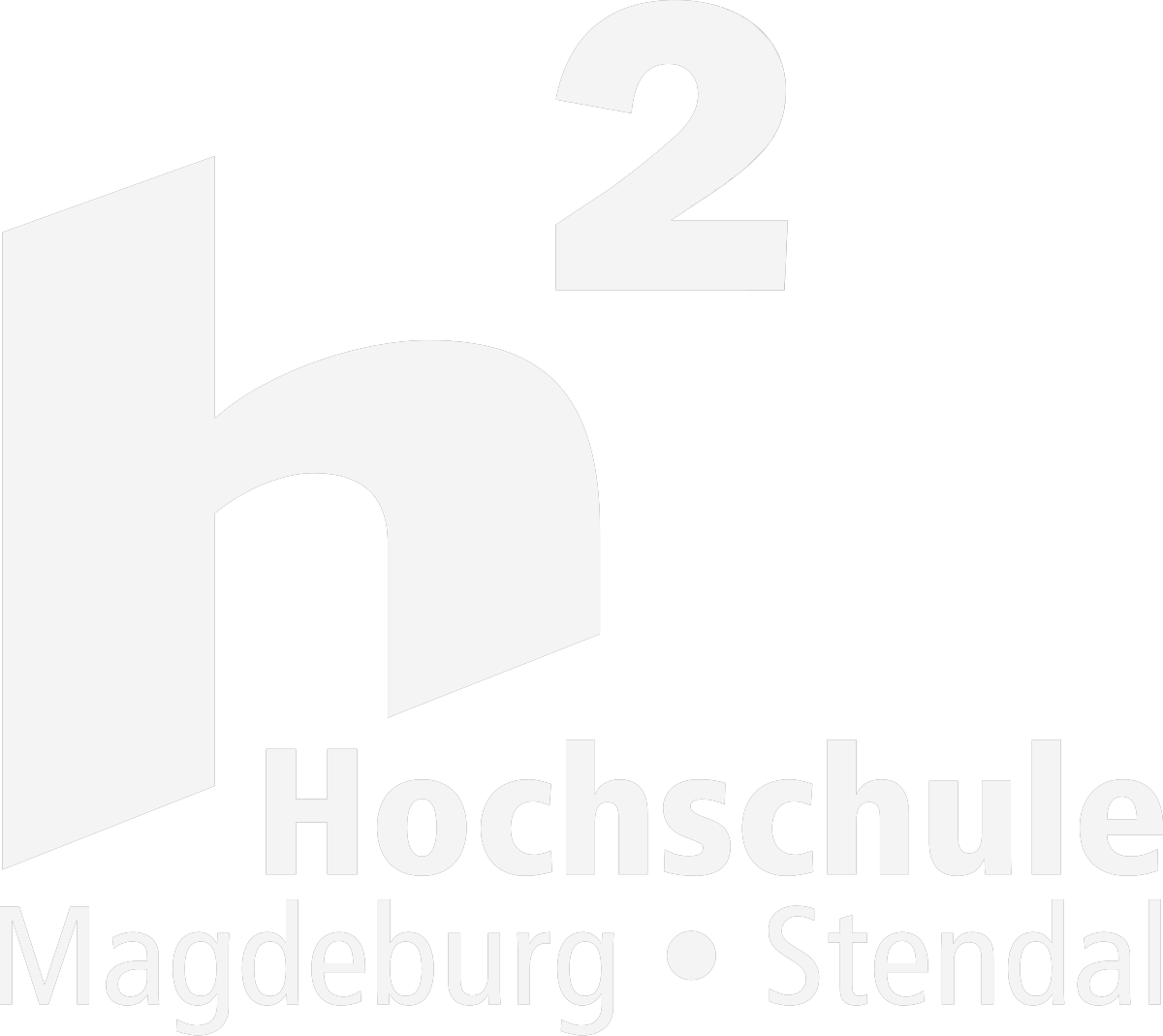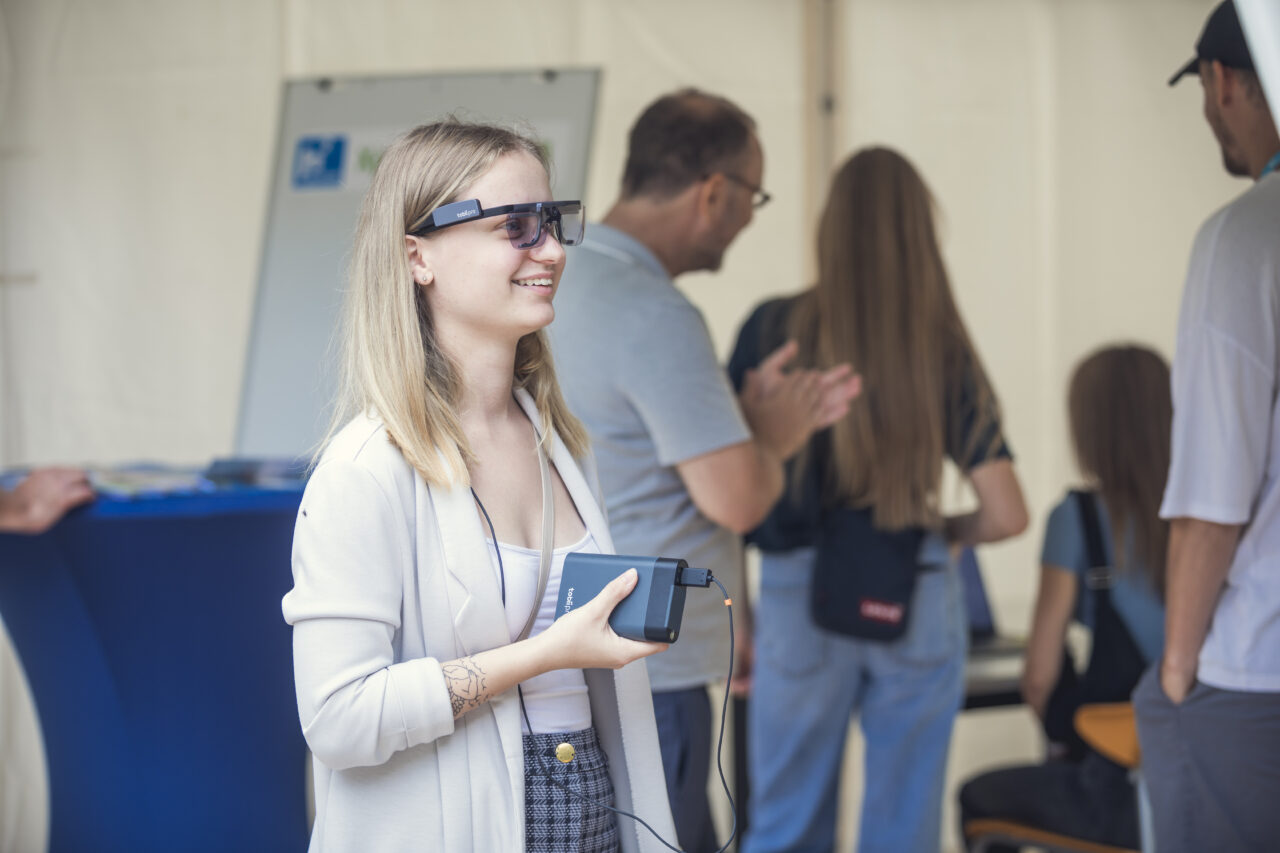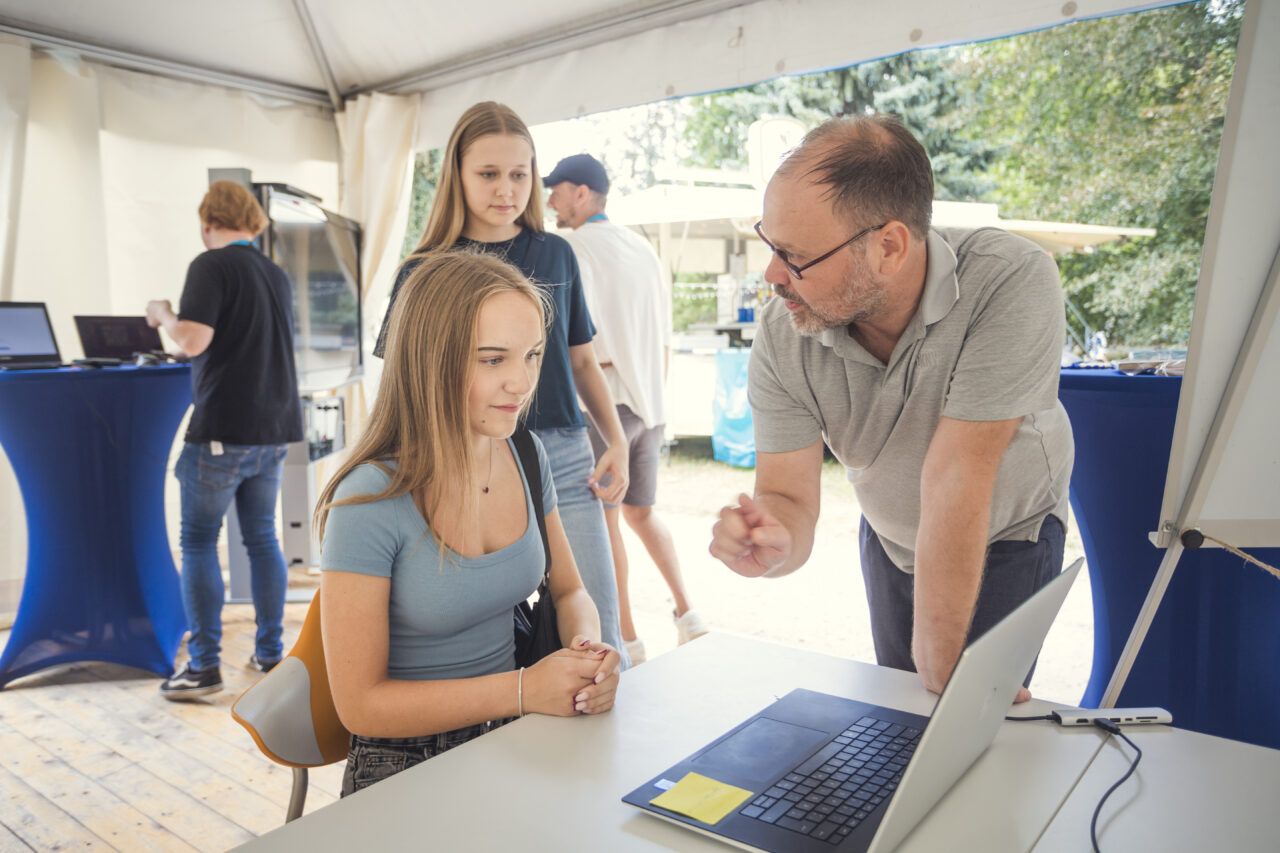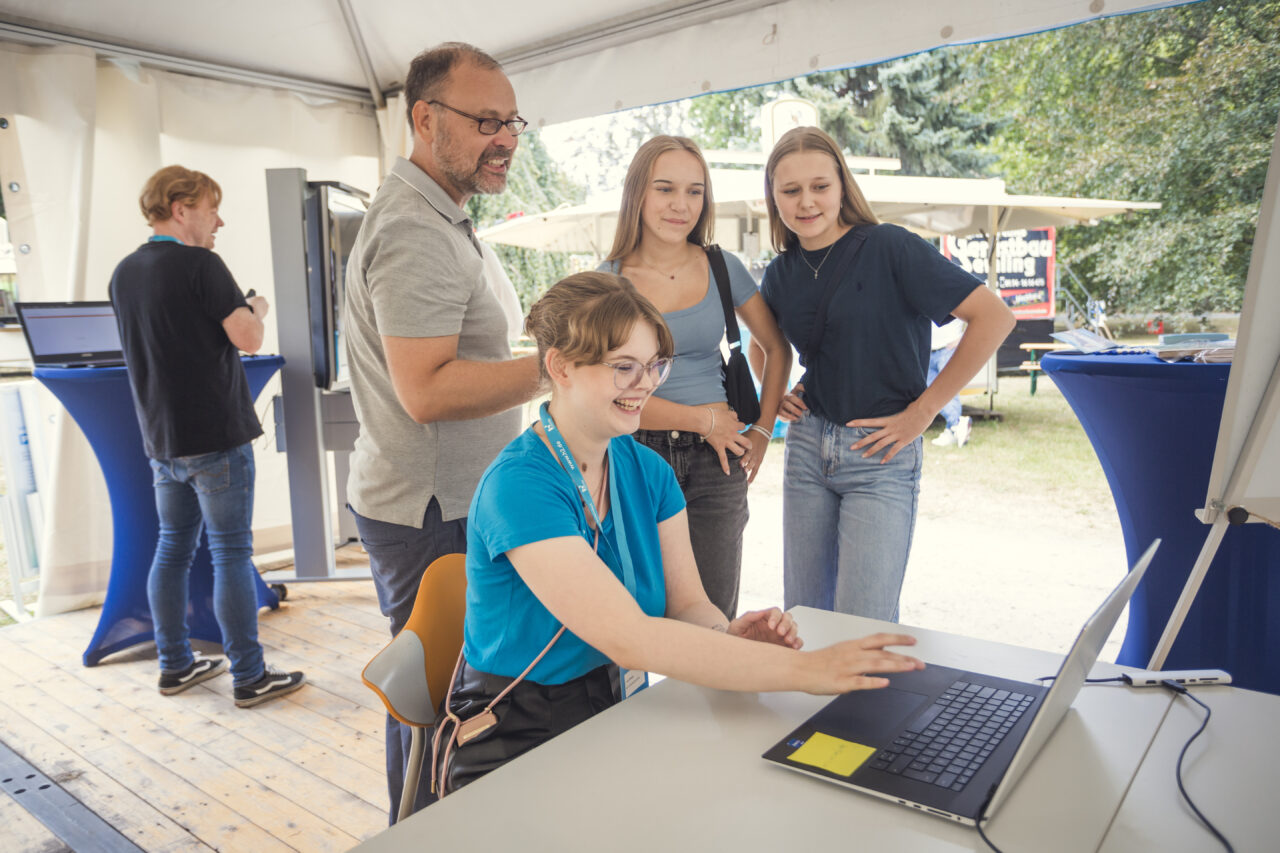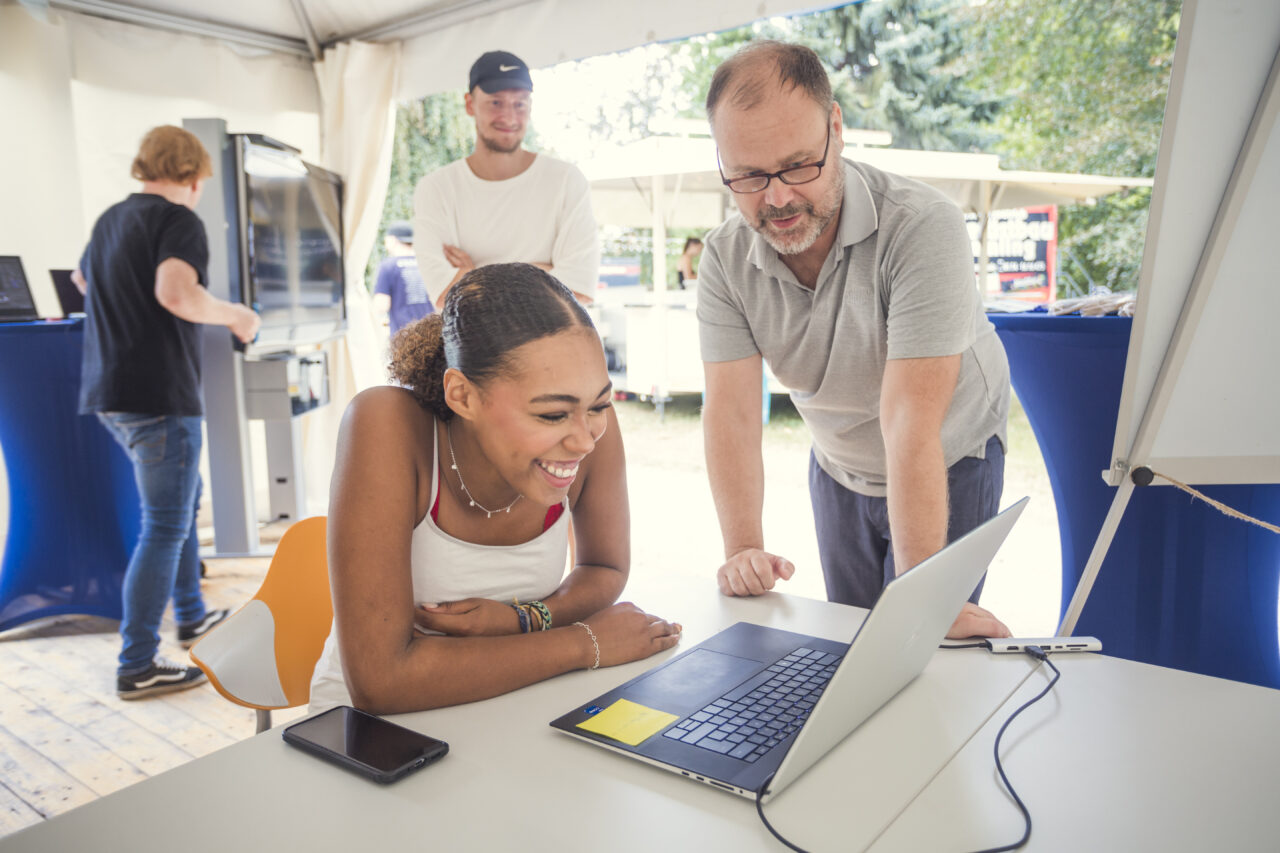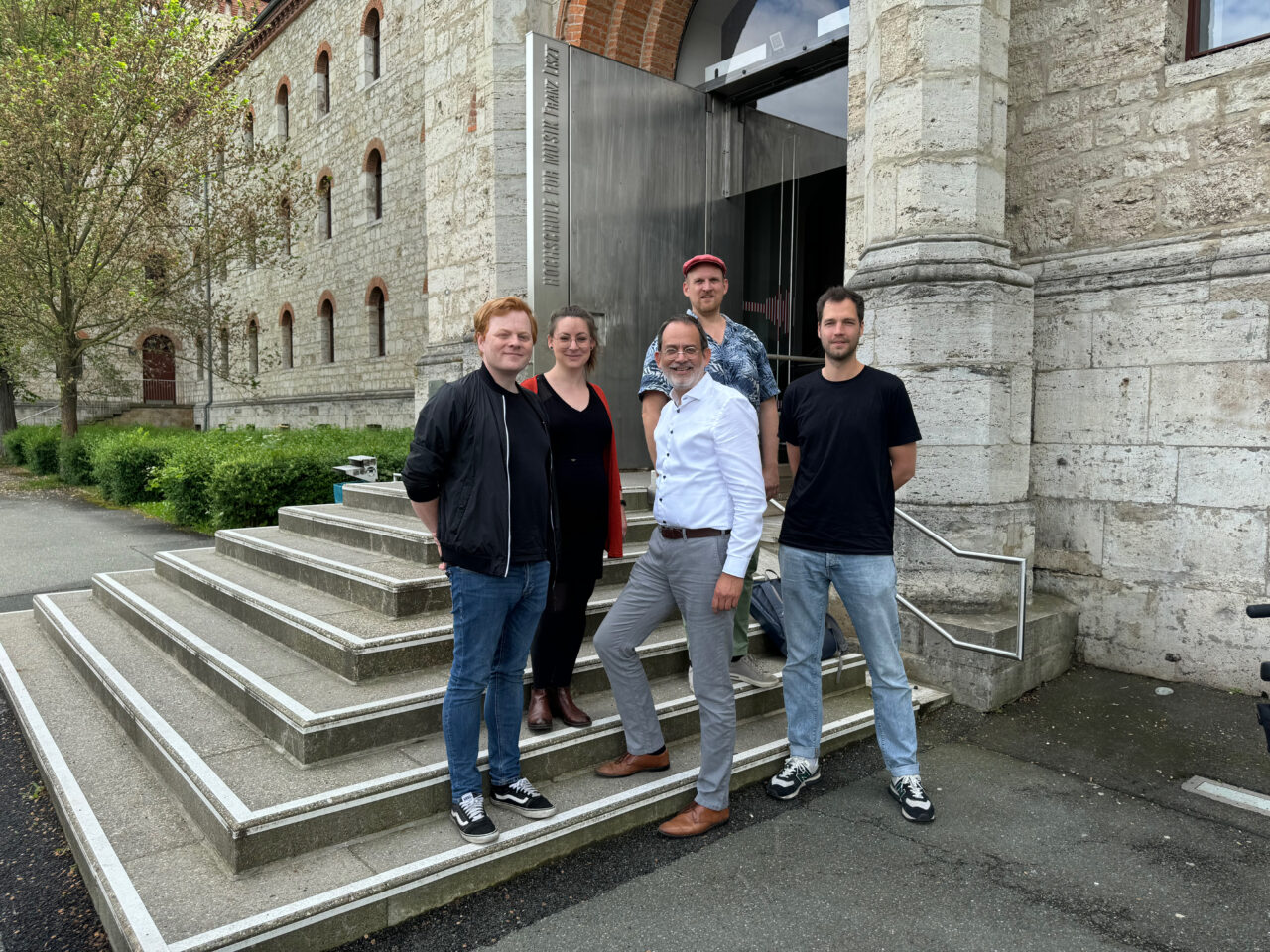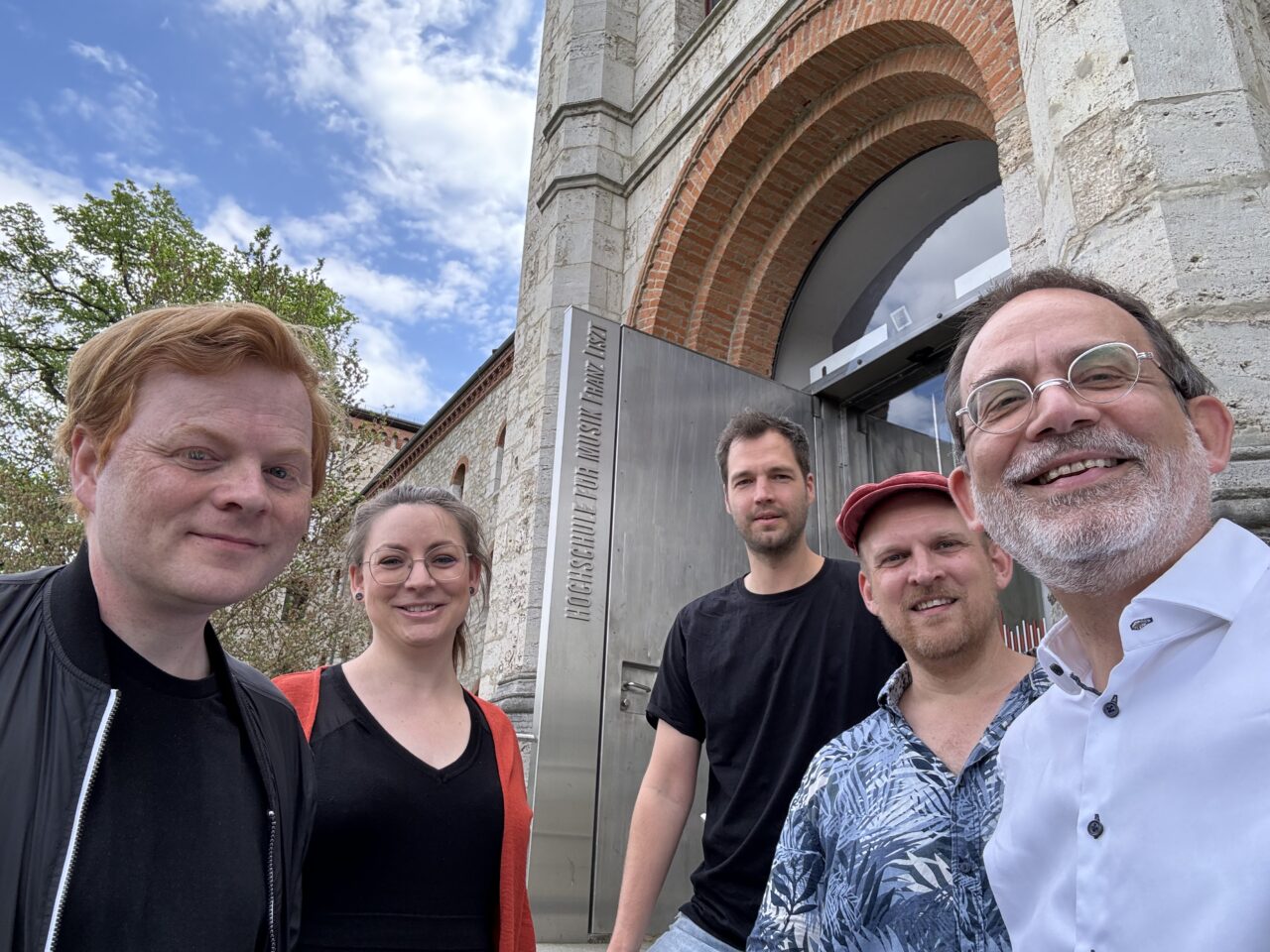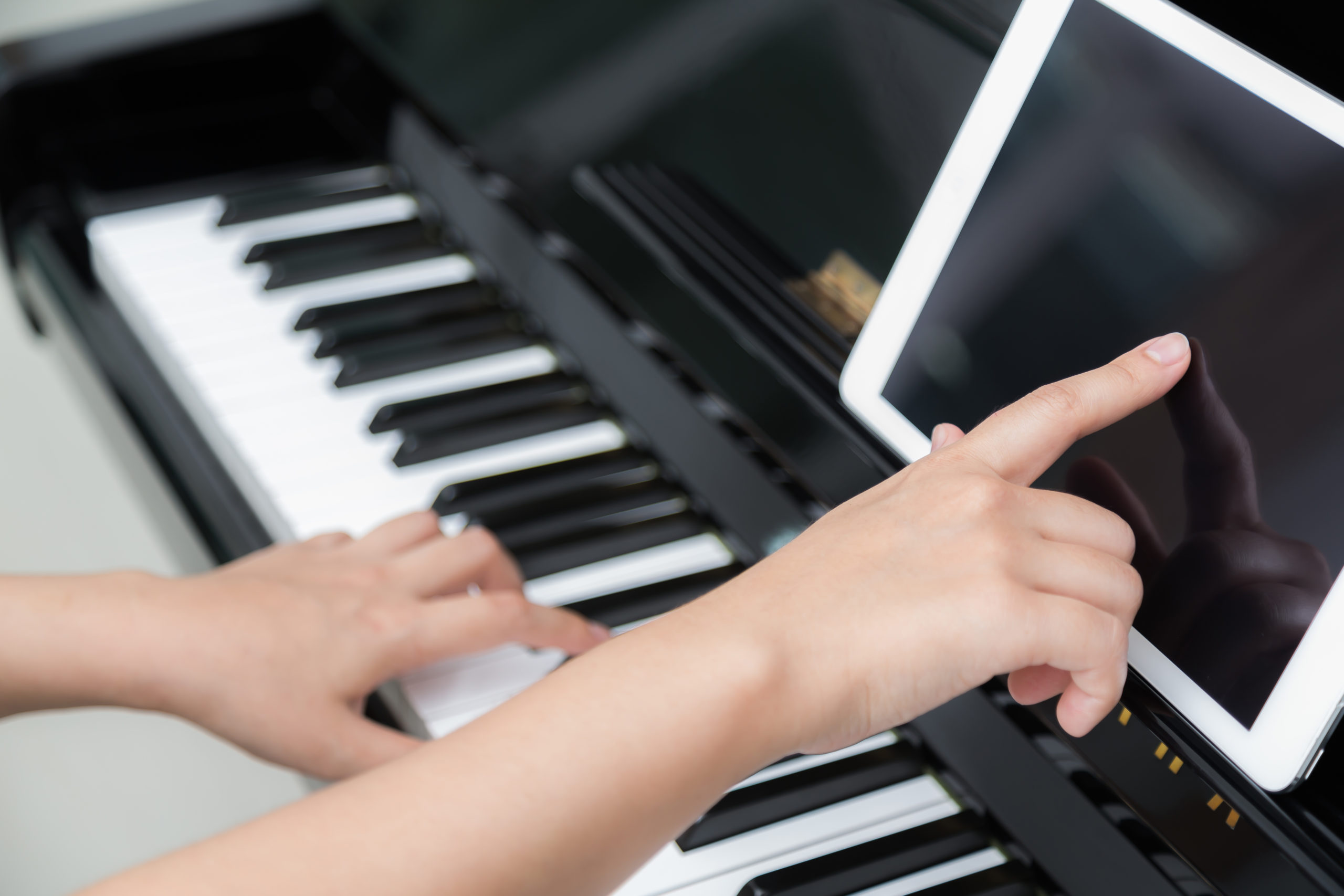
Music education is an essential pillar of our cultural education. Music schools make a significant contribution by fostering musical skills and promoting non-verbal communication. In an increasingly post-digital world, music schools are seeking ways to combine traditional teaching methods with the possibilities of digital technologies. One major challenge, in particular, is the aspect of practicing at home. Parents often lack the musical and digital skills to support their children while practicing. This is where the collaborative project MusiGeNuM comes in, focusing on the development of digitally supported learning and practice scenarios that not only make the learning process more effective but also promote equal opportunities and educational equity.
The MusiGeNuM project aims to enhance students’ self-efficacy by developing a digital learning assistant and making the learning process during home practice more autonomous. This digital learning assistant is intended to provide both students and teachers with clear structures and feedback mechanisms to make practicing more effective and to specifically promote digital competencies. The focus is on combining traditional music education methods with the potential of digital technologies to sustainably improve the learning process.
The MusiGeNuM project pursues the overarching goal of strengthening students’ self-efficacy through digital learning support and breaking down barriers in music education. Central to this is the exploration of success factors and usage scenarios for digitally supported learning environments. A particular focus is on improving practice processes and music reading skills, with digital technologies such as an interactive learning assistant and eye-tracking playing a key role. Specific sub-goals include:
Strengthening self-efficacy
Through digital tools, students are to be empowered to shape their learning process independently. These digital tools offer clear structures and targeted feedback, enabling the documentation and enhancement of learning progress.
Development of a digital practice assistant
A central aspect of the project is the development of a digital learning assistant that supports students during home practice and provides guidance on effective practice strategies. The practice assistant is designed to relieve teachers and offer students the opportunity to practice autonomously and efficiently.
Enhancing music reading skills
By using eye-tracking technology, the processes of reading music will be analyzed, and didactic aids will be developed to help teachers and learners develop effective strategies for reading music and sight-reading.
Increasing equal opportunities
Digital learning aids are intended to support students, especially those from less privileged households, whose parents may lack musical or digital skills to assist their children with practice. The goal is to transform the practice culture and create educational equity.
The methodological tools of educational research are utilized and expanded to more precisely examine self-efficacy in instrumental and vocal learning, the effectiveness of interventions, and the role of digital competence. Eye-tracking technology is used to analyze students’ eye movements while reading music. This data helps identify effective strategies for sight-reading and integrate them into music school and individual practice routines. The project follows an interdisciplinary approach: The Department of Music Education investigates the social and subject-specific didactic aspects, while the Department of Information Systems Engineering is responsible for the design and development of the digital technologies.
The MusiGeNuM project is supported by a wide network of research, practice, and implementation partners. The transfer of results occurs both in research and in practical music education. Best-practice examples are developed and serve as guidelines for implementing digitally supported teaching methods in music schools. An important first step is classroom observation, in order to understand the specific requirements and challenges in instrumental and vocal pedagogy.
MusiGeNuM builds on the findings of the previous project DiMuSA (Digitalization of Music School Teaching in Saxony-Anhalt). In this project, in collaboration with the Association of Music Schools of Saxony-Anhalt, digital competencies were strengthened, and the technical equipment for educators was improved. Regional networks were established to advance the digital transformation of music schools. This preliminary work forms the basis for the further development and exploration of digital learning technologies within the framework of MusiGeNuM.
01.01.2024 – 31.12.2026
- Hochschule für Musik Franz Liszt Weimar, Musikpädagogik
Prof. Dr. Anne Fritzen - Hochschule Magdeburg Stendal, Bildungstechnologien
Prof. Dr.-Ing. Michael A. Herzog
- Kulturelle Bildung in gesellschaftlichen Transformationen: Bundesministerium für Bildung und Forschung (BMBF)
Prof. Dr. Michael A. Herzog
Projektleiter
Wirtschaftsinformatik
Hochschule Magdeburg-Stendal
michael.herzog@h2.de
Stefan Püst, M.A.
Interaktionsdesign/Informatik/Bildungstechnologien
Hochschule Magdeburg-Stendal
stefan.puest@h2.de


